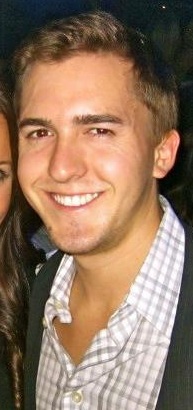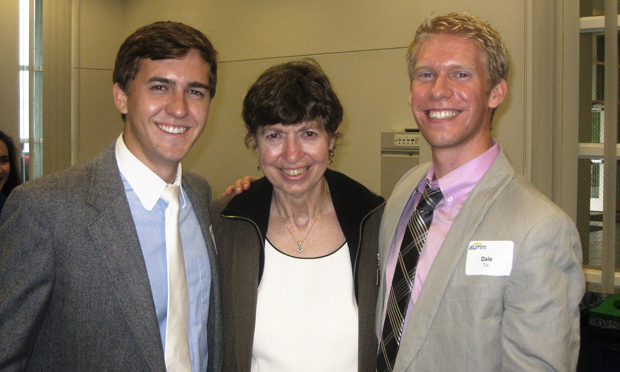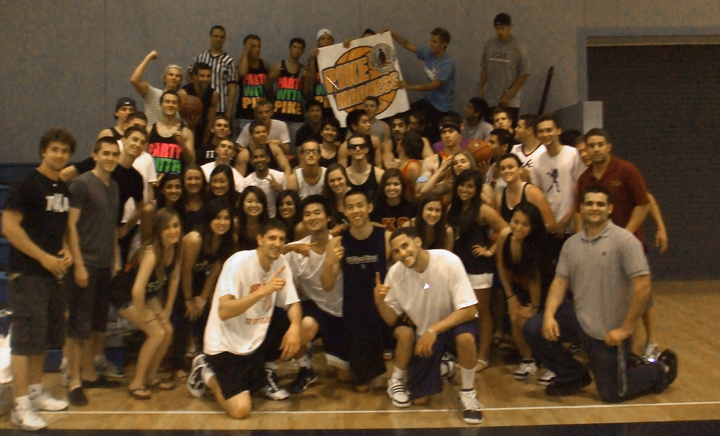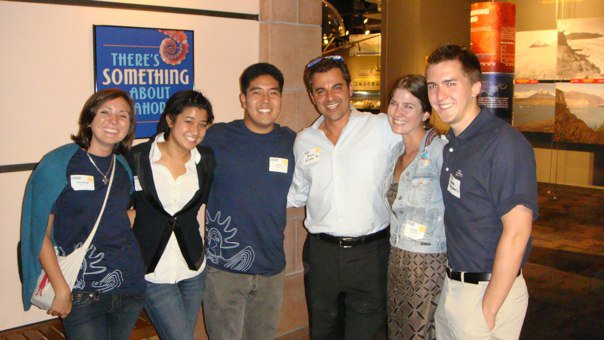Published Date
Share This:
Q&A with Garron Engstrom

Garron Engstrom
Student involvement on campus can lead to more than just a great college experience. It can also lead to a job. Garron Engstrom is a prime example. He graduated last year with a degree in cognitive science and now works as an Interaction Designer at Mitchell International in San Diego. In this interview, he talks about how his work as a student ambassador led him to his current position, and he also offers advice for new graduates.
Tell me about your current job and how your involvement with UC San Diego Alumni led you to where you are today.
Technically my title is User Experience Engineer but, whenever anyone asks, I say I am an Interaction Designer. At Mitchell International, I am the lead designer for our claims management product – WorkCenter – a large, modular, end-to-end physical damage claims web application for insurance carriers. I get to interact with Product Managers, Business Analysts, Visual Designers, Developers and Account Managers in order to create new workflows and features, as well as enhance current functionalities. But, by far, my favorite activity is flying out to our customers to meet end users in order to better understand their goals and pain points.
At UC San Diego, I worked as a student ambassador for the Alumni Discovery Initiative, meeting with alumni in order to discover what their student experience was like on campus and how it got them to where they are today. One of the alumni I interviewed, Cody Frew, was an Interaction Designer at Mitchell International. Two years later, he’s my boss!

You recently spoke at a senior seminar through UC San Diego’s Career Services Center. What advice do you have for new graduates who are searching for jobs?
One of the best pieces of advice that was given to me my senior year, while I was job searching, was from my good friend and mentor, Armin Afsahi (Assistant Vice Chancellor, Alumni Affairs): Just because you have a college degree, you aren’t too good for an internship. And he was right. A lot of companies these days feel more comfortable hiring recent graduates as interns, to train them, before hiring them on full-time.
Do you have any advice about how to prepare for an interview or put together a resume?
It is important to always be thinking of ways to improve your resume and/or portfolio. Every class I took and every project I was assigned, I would try to relate it to something I thought was most relevant to the domain of work I wanted to go into. That way, when it comes time to write your resume, the content should just pour onto the page. Also, at our age, there is no reason your resume should be more than one page; keep it concise. Finally, I think it is extremely important to have a LinkedIn profile and/or an online portfolio, and that these, as well as your resume, are consistent as far as content and are telling a story. Anything that does not fit into the story you are telling about yourself should be removed (i.e. if you are trying to land a job as a computer programmer, you probably don’t need to include in your resume that you worked at Pizza Hut when you were 15 years old).

What activities were you involved with when you were a student on campus, and how did they shape your college experience?
I stayed pretty busy as an undergraduate. I worked in the Cognitive Neuroscience Laboratory, served as an All-Campus Senator on the Associated Students, worked at the Alumni Office, TA’d for Professor Jim Hollan, served as a Trustee on the Student Foundation, was President of the Order of Omega honors society and the President of the Pi Kappa Alpha fraternity. I also studied abroad in Paris. While all of these activities and affiliations gave me great experiences and friendships, I would have to say that the Alumni Association and the fraternity gave me the alumni and professional connections I needed to be successful.
Why would you encourage current and entering students to get involved?
Bottom line: every opportunity that was presented to me at UC San Diego and beyond was because of connections I made in student organizations.

How did your career direction change while you were a student at UC San Diego?
While I received my degree in Cognitive Science with a specialization in Human-Computer Interaction, I was not always interested in the web/technology industry. Both sophomore and junior years, I was heavily entrenched in the neuroscience focus of Cognitive Science. It was not until I worked in a lab that I discovered that neuroscience and research were not for me. Luckily I took COGS 120: Human-Computer Interaction from Professor Jim Hollan my junior year, and I immediately knew it was what I was meant to do.
How do you plan to stay involved with UC San Diego?
I hope to stay involved with the UC San Diego Alumni Association in any capacity that I can. I like to think of the relationship between the association and the alumni as symbiotic: I have certain skills and backgrounds that can benefit and advance the cause of the Alumni Association and, likewise, they have the infrastructure and network to help further my career and to help me make personal connections and friendships. I have a feeling that most people consider the Alumni Association as the people who call a couple times a year for money. And while contributing financially is very important, it is equally beneficial and fulfilling to donate your time and effort.
Fun Faves
Favorite place at UC San Diego: The Triton Steps on a sunny day with a bowl of Yogurt World
Favorite place on Earth: The Oregon coast during a meteor shower
Favorite hobby: Learning/reading
Favorite part of being a Triton: The alumni network
Favorite part of your job: Getting to meet end users of my product
Favorite way to spend $10: Farmers’ market
Favorite words to live by: “I want to put a ding in the universe.” –Steve Jobs
Share This:
You May Also Like
Stay in the Know
Keep up with all the latest from UC San Diego. Subscribe to the newsletter today.



